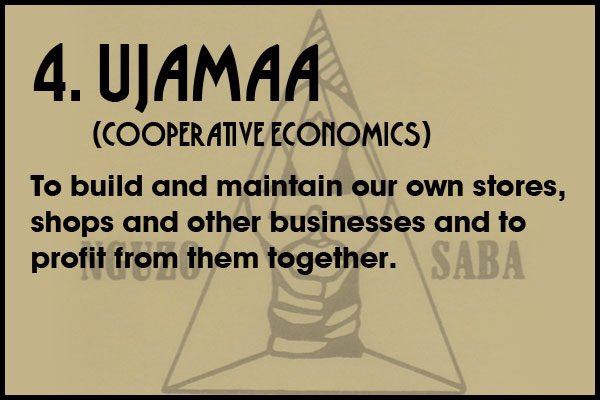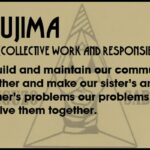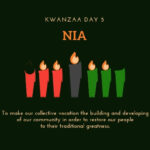The fourth principle of Kwanzaa is ujamaa, which means “cooperative economics” in Swahili. This principle emphasizes the need for people to work together and support each other financially in order to build wealth and prosperity.
One way to practice ujamaa is by buying from each other and supporting local businesses. When we buy from small, locally owned businesses, we help to build capital in our communities. Local businesses often have a positive impact on the local economy, as they tend to hire locally and spend their profits in the community. By supporting these businesses, we help to create jobs and stimulate economic growth in our own neighborhoods.
Another aspect of ujamaa is the idea of mutual aid and support. This means that we should work together to help each other succeed financially. This could involve pooling resources to start a business, or simply supporting each other through financial advice and assistance. When we support each other in this way, we build stronger, more resilient communities that are better able to weather economic challenges.
In addition to supporting local businesses and practicing mutual aid, ujamaa also emphasizes the importance of self-sufficiency and self-reliance. This means that we should strive to be as self-sufficient as possible, relying on our own skills, resources, and communities to meet our needs. By building self-sufficiency, we can become less reliant on external sources of support and more able to create our own wealth and prosperity.
The principle of ujamaa is a reminder of the importance of building capital and supporting each other financially. By buying from each other and practicing mutual aid, we can build stronger, more prosperous communities. By striving for self-sufficiency, we can create our own wealth and independence.





